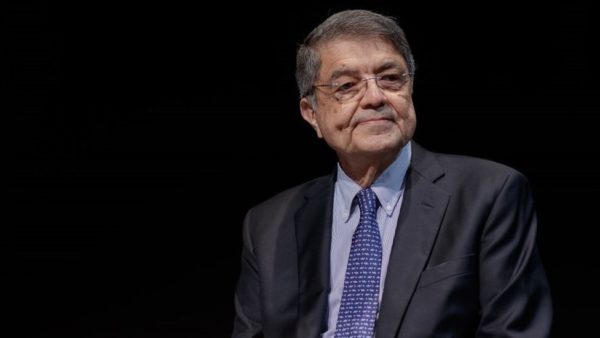The writer and former Nicaraguan vice president Sergio Ramírez, stripped of his nationality by the government of Daniel Ortega, called for a democratic “transition” without “bloody confrontation” in his country, in an interview published this Saturday by the Spanish newspaper El País.
“The first thing I would like to see not be repeated in Nicaragua is a bloody confrontation, that a confrontation would have to take place in the country to get out of another dictatorship. That horrifies me,” said Ramírez, who was vice president of the Sandinista government (1985-1990) then headed by current president Daniel Ortega.
“I know that whoever rises to power through arms ends up being a tyrant again and I am going to fight so that this does not happen,” insisted Ramírez, who fought in the ranks of Sandinismo against the dictatorship of Anastasio Somoza (1967-1979).
The writer, awarded the Cervantes Prize for Literature, defended a “transition towards democracy”, in which “all Nicaraguans can participate […]including those in power.”
Ramírez, who lives in Spain, was stripped of his nationality on Wednesday, along with 93 other exiled dissidents, by a Nicaraguan court, which declared them “traitors to the homeland.”
The same measure was applied to the writer and poet Gioconda Belli and, the previous week, to another 222 opponents, detained in the country, who were released and deported to the United States.
Related news: Poets of the world denounce the stripping of nationality from Nicaraguan writers Gioconda Belli and Sergio Ramírez
Spain offered to grant nationality to all these exiles, to prevent them from being stateless.
The Secretary General of the United Nations, António Guterres, declared himself “alarmed” by the Nicaraguan measure.
The governments of the United States and Chile also criticized these initiatives.
The chancellor of Chile, Antonia Urrejola, affirmed that the Central American country resembles “every day more […] to a totalitarian dictatorship, where any type of dissidence is persecuted”.
Ramírez, in the interview with the Spanish newspaper, called the measure “absurd.”
“The idea that they can take away your country is absurd, it doesn’t make any sense. No legal sense (…) ”, she pointed out.
“The idea that someone can tear something from you that is living inside you, which is your country… That convinces you that it is absurd,” he stressed.
Nevertheless, he was hopeful that he would be able to return to Nicaragua.
“I’m barely 80 years old,” he joked. “But I am sure that I will see the democratic change in Nicaragua, that I will return to my country […] I would like to be in those moments of change. That is where I would like to be and be as a writer, not as a politician.”


















